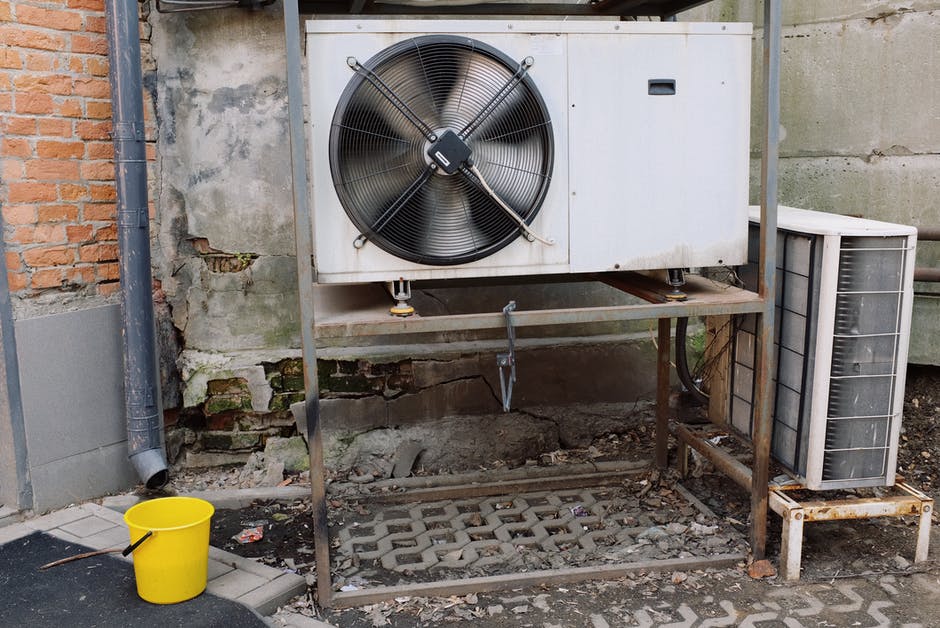
How Much Does HVAC Replacement Cost?
When it comes to HVAC replacement, you should know the prices you can expect to pay. HVAC can be replaced for as little as $129 a month. But there are many factors that would determine a price that low. This guide unpacks the various cost to replace your HVAC system.
HVAC Cost Calculator
In general, the cost to replace your home’s HVAC system will range between $4208-$12,612.
Whether you own a home or a business, HVAC problems come with the territory. HVAC, which is short for Heating Ventilation, and Air Conditioning, is a global industry that is worth about $241 billion today.

Learning as much as you can about HVAC systems will help you arrange for services whenever you need them. Once you know more about the cost and the variables that come with it, you can take the right steps for finding professional assistance.
This article will teach you all about finding an HVAC replacement that will work for your household or office.
HVAC Replacement Pricing
If you’re like the majority of people, the cost of your HVAC replacement is a priority. These systems circulate throughout your entire building and can rack up quite a bit of money in repair and installation costs.
A small HVAC system will cost you about $3,000 to $4,000 and can cost between $8,000 and $13,000 for upper-end systems.
A broken HVAC unit should be dealt with as quickly as possible so that you can get back to enjoying normal cool and warm air circulating.
How Do You Know You Need Work on Your HVAC System?
You’ll minimize damage and losses on your property when you handle your HVAC repairs or replacement quickly. The best way to do this is by knowing the main warning signs that your system needs work.
Here are some indicators that you need HVAC work:
It’s Not Getting Hot or Cold
The biggest sign that you’re having HVAC problems is that your system isn’t blowing out any cool or hot air. If the temperatures aren’t changing no matter what you select on the thermostat, it’s a sign that you at least need some repair work.
This problem could be because of a broken or malfunctioning air compressor. When your compressor goes bad, your HVAC system will either blow weak air or no air at all.
The System Is Making Loud Sounds
Take heed whenever your HVAC system is making loud noises. These sounds can also point to any number of problems that your heating and cooling system might be dealing with.
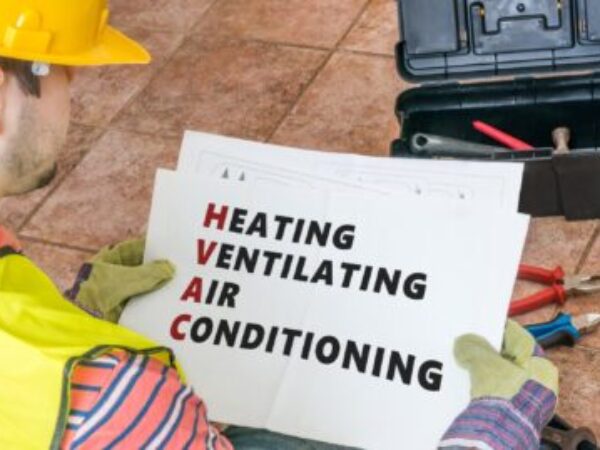
When your system sounds like it’s scraping or grinding, it could be a sign that parts are loose. Something as small as a loose or snapped belt can create tremendously loud noises all throughout your HVAC system.
You might also deal with loud sounds if something gets stuck in your fan blades. A bad blower might be in play if you’re noticing clanging and rattling. Many of these issues are minor, but a few could be warnings of more serious things to come.
You’ll need the help of a professional to find out for sure so get your system checked to ahead of time.
Your Utility Bills Are Getting Expensive
When your utility bills begin to skyrocket, it’s one of the strongest indicators that your HVAC system isn’t working correctly. Bills generally go up sharply because your equipment is either overworking or not running as efficiently as it could.
For instance, you might have blocks in your ventilation system that make it expel more energy than it should. You will appreciate the savings that come with quality HVAC performance. Letting these issues go unchecked will cause you to unnecessarily waste money.
Keep an eye on your bills so that you notice when something is out of sorts.
The System Is Emitting Odors
With HVAC problems, sometimes it’s not about what you hear – pay attention to what you smell.
If you’re noticing sour, damp, or foul odors coming out of your vents, this indicates an issue that needs your attention. When it smells moldy and mildewy like this, you’re likely dealing with a lot of condensation.
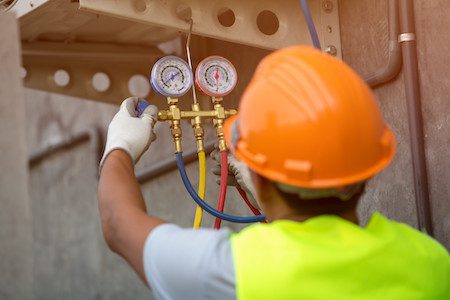
Some homeowners deal with the dreaded rotten egg smell spewing from their vents when they turn on their HVAC system. This symptom is an A-1 priority to deal with because it’s potentially dangerous. That sulfur smell is often due to a gas leak, which can cause serious harm to your health and make your home a fire risk.
Keep your carbon monoxide monitors charged and in service so that you know right away when your HVAC system is creating a gas leak.
When you’re smelling burnt rubber, this is typically due to electrical issues. That burnt smell can come about because of circuit board overloading, faulty wiring, and electrical overheating. These HVAC electrical issues waste energy and also put your home or business at risk.
If your HVAC system is starting to smell like dirty laundry, you might be dealing with bacteria in your evaporator coils. Circulating this bacteria can trigger respiratory irritation.
All of these issues require your attention, so get them checked out quickly.
The Thermostat Isn’t Working Right
Get the help of a professional whenever your thermostat isn’t working or responding how you think it should. When you set it to any particular temperature, gauge how long it takes to adjust.
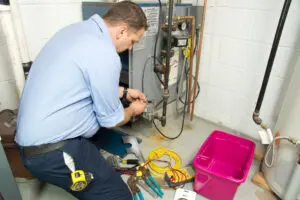
If the performance that you get from your system doesn’t match the temperatures that you’re experiencing, it’s likely time for a new thermostat. Look into a brand new thermostat that lets you program it with different zones, times, and other settings.
A bad thermostat can cause your system to burn too much energy, driving your bills up unnecessarily. This can also make you incredibly uncomfortable in your home.
With today’s thermostats, you can even control the temperatures remotely using a smartphone app. Nip the thermostat issue in the bud so you can get control of energy and HVAC performance.
What Makes Heating and Cooling So Important?
You’ll have more urgency with your heating and cooling when you realize just how important it is to your home or business. Close to 90% of Americans have air conditioning.
Temperatures are rising by an average of 2 degrees Fahrenheit, so you have to invest in the work that professionals can offer. Paying attention to detail with your HVAC system will let you get through the most frigid winters, and you’ll appreciate the energy savings that you experience.
Managing your HVAC system is an important part of keeping your building’s interior clean, starting with the air. Regardless of what sort of home HVAC unit, you’ll need to get it inspected at least once per year.
You’ll get more out of your HVAC system when you get it checked out twice per year – once in the fall and once in the spring.
How Much Do HVAC Units Cost?
Before you go through the trouble of getting an HVAC installation it’s important that you start looking into the equipment that’ll serve you, at a price point that is affordable for you.
Since these systems can sometimes cost more than $13,000, you need to learn about the factors that’ll cause the price to be higher.
A lot of factors influence your HVAC system cost, including:
It’s Essential for Comfort
People are willing to pay more for the essentials. Since heating and cooling keep people comfortable throughout the seasons, you won’t want to go through a summer or winter without it.

Many states also have laws that require landlords to fix a tenant’s heating and cooling once the temperatures reach a certain extreme. Since this equipment is essential for human comfort, people are more willing to pay a significant price to get it fixed or to replace equipment.
This is especially important if you live somewhere that regularly gets scorching summers and bitter winters. An emergency replacement will also cost you more money – particularly when it happens during peak seasons.
Your HVAC system also plays a role in your indoor air quality and comfort. Newer air conditioning systems also come equipped with settings that help to control the humidity in the building.
When you get a new HVAC system for your business, your employees benefit more than anyone else. People need somewhere comfortable to focus and work so that they’re about to put in the 40-plus hours each week.
There Are Many Different Types of HVAC Systems
Take time to consider the many different kinds of heating and cooling that you can shop for. Look into the specifications of the systems, along with the specialties of the professionals that do the work.
Some of the different kinds of HVAC systems that you may shop for include:
- Hybrid split systems
- Duct-free mini split
- Packaged air and heating systems
- Electric air conditioners and furnaces
- Hydronic heating systems
- Mini split heat pump systems
- Geothermal heat pump systems
Professionals can even install brand new HVAC systems for mobile offices and tiny homes. Once you get to know the various types of HVAC systems on the market, it becomes easier for you to manage your utilities and keep your building more comfortable.
Purchasing one of the more high-tech systems will cost you on the upper end of the spectrum, but it balances out because you’re less likely to have consistently high utility bills.
Make the investment into your building so that it pays off for you over the next several years.
Pros Might Need to Fix Your Infrastructure
There are certain situations in which more in-depth work needs to be done before you can get your HVAC system installed. Professionals will offer your proper a total inspection first to get to the root of the issue and any surrounding work that must be done.
In many cases, a professional will also need to work on your roofing and insulation to make sure there are no air leaks creating problems. During this inspection, the professionals will look into the R-Values and make sure the material is holding up.
These values range anywhere between R-2 and R-60, and denote how much insulation protection your property has when compared to the rest of the environment. Keeping up with your insulation will allow your roof to perform at its best without suffering unnecessary damage.
Roofing pros may also need to conduct work in your attic, chimney exhaust system, and other parts.
How Much Do HVAC Companies Charge to Install Units?
Keep in mind that HVAC companies also set their own rates based on labor and other fees. In general, installation costs can be as little as $800 to as much as $4000.
Get to know the labor rate for the HVAC installation service that you’re quoted for. It’s common for HVAC professionals to charge $140 per hour or more for installation and repair work.
These labor rates might change based on the zip code, state of the economy, and the level of difficulty and time that goes into the work. Whenever you get a quote from a licensed HVAC professional, make sure that they itemize it so that both the equipment and labor are clearly stated.
Should I Repair or Replace My HVAC Unit?
To repair or replace? That is the question that most homeowners or business owners will need to ask themselves about their HVAC units at some point. In some cases, a repair is inexpensive, straightforward, and gets your HVAC system back on track for several years.
In other situations, the extensive repairs may not be worthwhile for you to sink that kind of money into a failing HVAC system. Here are some of the circumstances that you’ll need to consider:
Consider the Age of Your HVAC Unit
One of the main points to consider is the age of your HVAC system. No matter how well-crafted your system is, there comes a point that you’ll need to replace it because it keeps breaking down and technology has advanced.
Experts say that you should change your HVAC system every 15 years or so. If you have had yours for that long, close to it, or longer, you’ll need to begin considering a replacement.
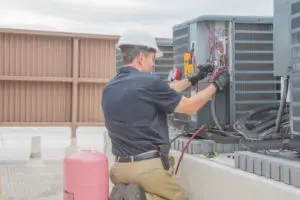
It’s better to swap it out with a new system that will last another 15 years or longer. Once your systems begin getting up there in years, make sure to add extra measures to a maintenance or protection plan policy.
As you consider the age of your HVAC unit, you should also consider whether it uses outdated technology that you should upgrade beyond.
How Much Does an HVAC Vacuum Pump Cost?
When getting some work done on an HVAC system, things often come down to parts. The vacuum pump is one of the most important parts of any HVAC system because it’s responsible for removing gases, liquids, and contaminants from the HVAC system.
Before replacing a vacuum pump, there are several steps of maintenance and troubleshooting that you should satisfy, including:
- Regularly check and change your vacuum pump oil and other lubricants
- Keep the outlet for the vacuum pump free and unobstructed
- Inspect the vacuum pump exhaust filters and change them if necessary
- Gauge the pump casing temperature and compare it to the oil filter temperature
- Always keep the pump clean and scrub it free of any excess oil or buildup
- Let your pump run for a few minutes after every use to avoid solvent deposits and buildup
- Visually inspect parts like the drive belts, anti-suck back valve, float valve, and heat exchange pump for any signs of wear and damage
After exhausting these maintenance and troubleshooting measures, you’ll want to look toward a replacement if nothing changes. Expect to pay $4,000 or more for an HVAC vacuum pump. Shop around for a pump that is perfectly fitted to your system and its specifications.
How Much Does a Split System HVAC Cost?
A split HVAC system is one that has multiple units, both inside and outside your home. All of these units are brought together by a sophisticated series of copper tubing.
You’ll appreciate that split HVAC systems run quieter than other types. These HVAC units are easy to install, are green-friendly, and are among the most cost-effective on the market.
Split system HVAC systems give you more options with your interior design since they can be installed in a variety of different locations. Each HVAC zone will typically cost you anywhere between $5,000 and $8,000. Speak to a few different professionals to learn about the different kinds of systems on the market.
Look into the help of professionals that can give your property an inspection so that you know how many zones will be effective in your household. Take some cost estimates from pros in your city so that you can get the split system installation that you need.
How Much Do American Standard HVAC Units Cost?
In most cases, you’ll pay between $5,000 and $9,000 for an American Standard HVAC system. These systems are some of the best on the market and come with some of the best specifications that you’ll find.
For example, the AccuComfort Variable Speed Platinum 20 Air Conditioner has a 22 Seasonal Energy-Efficiency Ratio (SEER) rating. It runs quietly and comes in a variety of different stages of cooling.
If you’re in the market for a new heating system, the Platinum 95 Gas Furnace is a great option. It heats your home in different stages, and you will also enjoy a 97% Annualized Fuel Utilization Efficiency (AFUE).
Give yourself a chance to test out these systems in an HVAC or home improvement store that features a showroom.
How Much Do Bryant HVAC Units Cost?
In most situations, Bryant HVAC systems cost between about $4,000 and $10,000. They’re some of the most recognized brands, and they have models for different home sizes and building styles.
The Bryant Legacy 106A and 116B are excellent models to look into, because they have several energy saver modes, run quietly, and are low-polluting models.
They cool your home without causing spikes to your energy bills.
Homeowners that are in the market for heating systems might look into models like the Evolution 96 and Evolution 98 models. These are excellent options because they have a 96 and 98 AFUE, and impeccably modulate the flow of gas.
Gas furnaces are particularly useful if you happen to lose your power during a winter storm. Gas heat will stay on throughout the outage, heating your home so that you can brave the freezing temperatures.
How Much Do Carrier HVAC Units Cost?
Carrier HVAC systems are always an excellent option for people looking to get quality heating and cooling work. Purchasing a combined heating and cooling system is a good bet when you’d like to get the most from your budget.
A Carrier unit will cost you anywhere between about $3,000 and $6,000. These are some of the more affordable models, but the brand doesn’t sacrifice quality. You will appreciate the performance of these systems and will enjoy that they have some of the best specs.
A Carrier system like the Infinity 26 system gets a 26 SEER rating and has features like comfort zones and some of the quietest performance that you will find from an HVAC system in its class.
For furnaces, you might enjoy the Carrier Infinity 98 gas furnace. This system gets 98% AFUE and has features like humidity control, top-tier sound performance, and a variety of comfortable temperature settings.
How Much Do Lennox HVAC Units Cost?
Lennox is another renowned brand of HVAC systems that you’ll want to shop for when you’re looking for a heating and cooling system. In most cases, a Lennox HVAC system will cost you between about $3,000 and $7,000.
These are mid-range systems that come in several different models. Purchasing a Lennox system gives you optimal heating and cooling inside your house. Some of the best models that you might look into buying include the Lennox SL28XCV and the Lennox XC21.
These systems come with features like 10 SEER and 28 SEER ratings, depending on the model that you’re looking into. You will experience savings between $1,000 and $3,000 every 5 to 15 years.
When you’re looking into a Lennox heating system, some options that you might consider include the SLP99V and SL280V. These models get AFUE ratings of 80 to 99.
These systems have energy saver settings and will let you keep your home warm at an affordable price.
How Much Do Bryant Trane Units Cost?
Bryant Trane systems feature plenty of cooling capability so that you can manage your home temperatures during the summer. The XV18 TruComfort Variable Speed Air Conditioner is an option that gets SEER ratings of 18, and noise levels between 55 and 75 DbA.
Trane heating systems include models like the XC95m, S9X1, and S9X2 gas furnaces. They have features like a 97% AFUE, modulating gas furnace, sound insulation, and humidity control.
These systems will cost you between about $6,000 and $11,000 most of the time.
How Much Do Rheem HVAC Units Cost?
Rheem is another brand of HVAC system that is reliable and versatile. These heating and cooling systems cost $3,000 to $6,000 the majority of the time.
Their brand is recognizable because these systems are affordable but deliver top-notch performance. Consider the Classic Plus Series, which features a 17 SEER rating and 13 Energy Efficiency Ratio.
If you’re in the market for a new furnace, the R802V offers an option. It features two stages of operation and quickly lets you match with the temperature that you prefer.
How Much Does HVAC Installation Cost Per Square Foot?
When you’re looking to get any sort of HVAC installation, you should get an itemized quote for the service that you’re going to receive. This quote is two parts since it features parts and labor.
For the labor, contractors might charge by the hour or by the square foot. If your HVAC professional charges you by the square foot for the installation work, you might expect to pay $15 to $20 per square foot.
How Much Do HVAC Parts Cost?
When you’re fixing or replacing your HVAC system, it also makes sense to study the parts. These systems break down for several different reasons, so you have to figure out which parts you need to get them back to their regular condition.
Always get a professional inspection to learn exactly what went wrong with your system, so you can purchase the correct part to fix it.
Some of the HVAC parts that you can look to purchase include new combustion chambers, blower motors, heat exchangers, and thermostats.
When you’re going to purchase a new set of parts for your HVAC system, shop for the best brands. Study the tendencies of your HVAC system so you know which types of malfunctions are the most likely.
This way, you can shop for the best parts in stock and cover your HVAC system with a warranty.
How Much Do Electric Furnaces Cost?
Electric furnaces are popular options for people. They give you more control over heating individual rooms in your household. Purchasing one of these furnaces brand new can cost you between about $1,200 and $6,000.
Study the specifications of these systems so that you buy the type that will keep your home warm and comfortable.
These systems are evolving, as homeowners and industries are turning toward clean, green advancements. Professionals are now using solar energy to power certain HVAC systems.
Shop around for the electric furnace that you’re interested in and find the technology that will work best for you.
How Much Do Gas Furnaces Cost?
Natural gas is the fuel of choice for many homeowners looking to heat their homes. It’s a cost-effective form of heat that also gets results.
These furnaces start at about $2,000 and can cost more than $5,000. These systems are versatile, and there are several types that you can choose as you shop. Research the efficiency ratings and different modes and features of the furnaces that you’re interested in.
This way, you’re able to get the best deal and quality performance in return.
When Replacing HVAC Do You Need to Replace Ductwork?
Figuring out whether or not to replace your ducts is something that homeowners need to consider. Typically, your ducts need to be replaced if they are old and worn down.
If your ducts are more than 15 years old, it might be time for you to consider getting them replaced. Homeowners also change their ducts when they’ve accumulated rust or heavy corrosion.
When your ducts have experienced a lot of damage and contamination it can even create health issues for the people in your home. To replace your ducts, you will typically expect to pay between $1,500 and $6,000. The best way to know whether you need to replace your ducts is by getting your system inspected every year.
After your annual HVAC inspection, you’ll know the condition of your ducts and whether you have much time left with them. To get the best performance from your system, it might also serve you to get new insulation to support your HVAC work.
Ask your HVAC contractor about the R-Values that you need for your home to be protected from the weather outside.
Take the time to find a service technician that will handle the work for you at a good price. Have them add a warranty to the ductwork so that it’s covered from the potential damage it can encounter over the years.
Handle Your HVAC Replacement
The tips presented will help you out when you’re looking for an HVAC replacement. By discussing your options with some contractors you’ll be able to manage your heating and cooling work correctly.
Having an in-depth guide at your fingertips will let you do what’s best for your home heating and cooling needs. A replacement takes some time, money, and diligence, so give yourself the best chance by finding the work that you need.
Kwote Advisor can help you out whenever you need a quote on top-notch home services. You’ll be able to find the most qualified professionals available in your local area, which is critical for your home and the people that live in it.
Explore our site to learn more about us and to get a quick and reliable quote.
